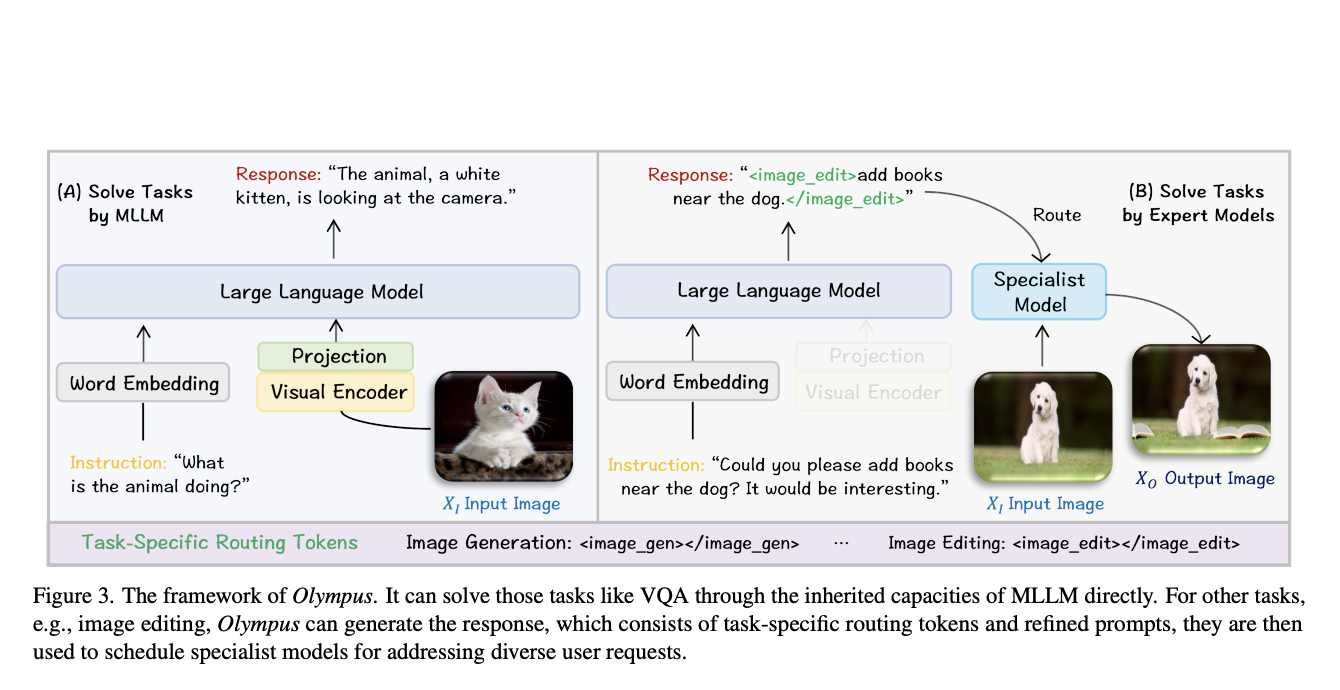
Revolutionizing Computer Vision with Olympus
Computer vision has advanced significantly in tasks like object detection, segmentation, and classification. However, real-world applications such as autonomous vehicles, security, and healthcare require multiple tasks to work together. Managing different models for each task can be challenging and inefficient. To address this, researchers from the University of Oxford and Microsoft have created a new framework called Olympus.
Key Benefits of Olympus
- Task-Aware Routing: Olympus uses a controller, the Multimodal Large Language Model (MLLM), to analyze tasks and direct them to the best-suited models, optimizing resource use.
- Scalable Framework: It can manage up to 20 tasks at once without needing separate systems, integrating smoothly with existing models.
- Knowledge Sharing: Components within Olympus share insights, enhancing overall efficiency.
- Chain-of-Action Capability: Olympus is adaptable and can handle multiple tasks, making it ideal for complex applications.
Performance Highlights
Olympus has shown outstanding results, achieving a routing efficiency of 94.75% across 20 tasks and a precision of 91.82% in multi-task scenarios. Its modular design allows for easy addition of new tasks with minimal retraining, showcasing its scalability.
Why Olympus Matters
Olympus represents a major advancement in computer vision technology. Its innovative routing system and knowledge-sharing framework tackle inefficiencies and scalability issues found in traditional multitask learning. By excelling in routing accuracy and adaptability, Olympus is set to transform how complex vision challenges are approached across various fields.
For further exploration, check out the Paper and GitHub Page. Credit goes to the researchers behind this project. Stay connected with us on Twitter, join our Telegram Channel, and be part of our LinkedIn Group. Don’t forget to join our 60k+ ML SubReddit.
Transform Your Business with AI
To stay competitive, consider how Olympus can enhance your operations:
- Identify Automation Opportunities: Find key customer interactions that can benefit from AI.
- Define KPIs: Ensure your AI initiatives have measurable impacts.
- Select an AI Solution: Choose tools that fit your needs and allow customization.
- Implement Gradually: Start with a pilot project, gather data, and expand wisely.
For AI KPI management advice, reach out to us at hello@itinai.com. For ongoing insights into leveraging AI, follow us on Telegram at t.me/itinainews or Twitter at @itinaicom.
Discover how AI can transform your sales processes and customer engagement at itinai.com.
























